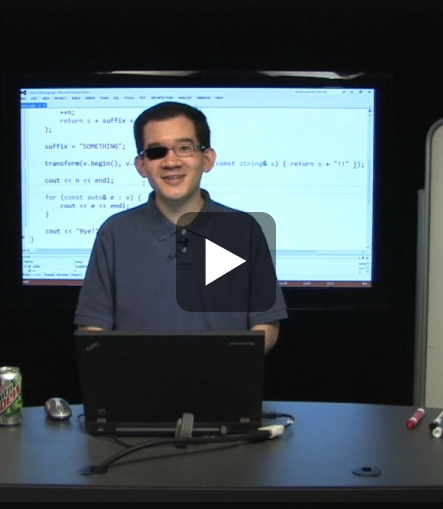GotW #93 Solution: Auto Variables, Part 2 -- Herb Sutter

GotW #93 Solution: Auto Variables, Part 2
by Herb Sutter
From the article:
As you worked through these cases, perhaps you noticed a pattern: The cases are mostly very different, but what they have in common is that they illustrate reason after reason motivating why (and how) to use
autoto declare variables.Let’s dig in and see...


 The two latest C++ lectures by Stephan T. Lavavej, the eponymous STL, are now available:
The two latest C++ lectures by Stephan T. Lavavej, the eponymous STL, are now available: The keynote addresses for
The keynote addresses for 
